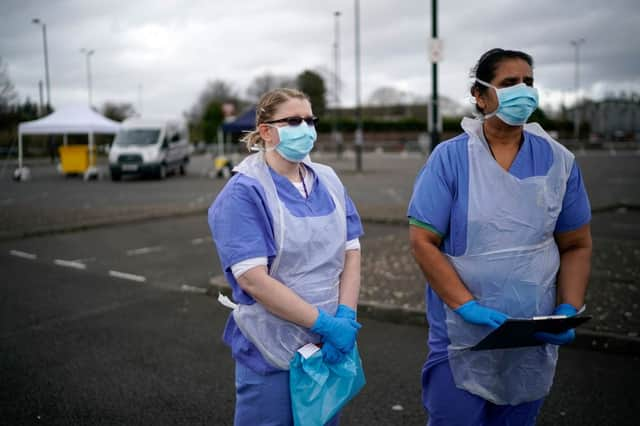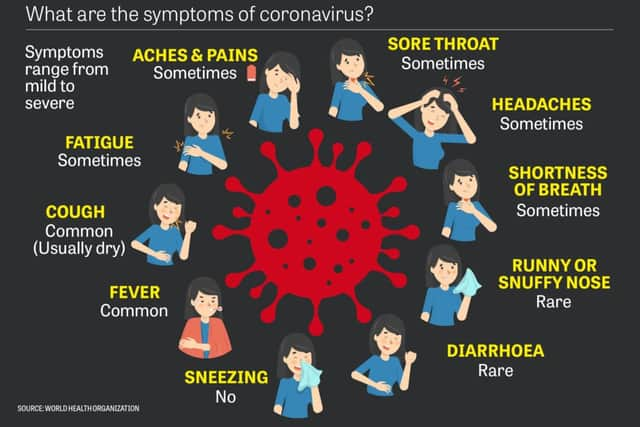“Social distancing” explained as government switches to "Delay phase" to battle coronavirus


The UK government has now officially switched gears from the "Containment" phase to the "Delay" phase in an effort to stop the spread of coronavirus.
As part of this change, the public can potentially expect "social distancing" measures to be introduced.
Advertisement
Hide AdAdvertisement
Hide AdScotland’s First Minister Nicola Sturgeon has already advised against gatherings of more than 500 people, while the Republic of Ireland has announced a Lockdown.


Here’s what you need to know about social distancing - and if it can help stop the spread of Covid-19.
What does social distancing mean?
As the government switches tactics to delay the spread of coronavirus rather than contain it, social distancing will be a key part of the plan.
The Delay phase is designed to slow the spread of the virus.
Advertisement
Hide AdAdvertisement
Hide AdThe government believes it would be beneficial to delay the peak phase of the virus to the summer months when there is less pressure on the NHS.
Some businesses may be asked to consider having their employees work from home where possible, and to discourage any unnecessary travel, in order to limit close, prolonged contact with those infected.
If social distancing measures do come into place, public gatherings could also be cancelled, schools may be closed and the public may be advised to avoid restaurants and public transport.
Have other places introduced social distancing?
Other countries affected by the spread of the virus have introduced social distancing measures.
Advertisement
Hide AdAdvertisement
Hide AdIn Europe’s toughest lockdown, the Italian Prime Minister Giuseppe Conte said that all shops apart from food stores and pharmacies are to close, including bars, restaurants, hairdressers, schools, gyms and more.
In China, where the virus originated, there are strict lockdown proceedings with the World Health Organisation saying that China’s containment measures might have saved thousands from being infected.
Aggressive social distancing in China saw cities sealed off, businesses and schools shut down and people being ordered to stay indoors.
Does social distancing help stop the spread of viruses?
The Centres for Disease Control and Prevention (CDC) states that while there is currently no vaccine or drug available to treat COVID-19, “community-based interventions such as school dismissals, event cancellations, social distancing, and creating employee plans to work remotely can help slow the spread of COVID-19.”
Advertisement
Hide AdAdvertisement
Hide AdIn the past, countries affected by outbreaks of viruses have introduced social distancing measures which have proved successful.
For example, during the 2009 Swine Flu pandemic, which originated in Mexico, the Mexican government closed most of Mexico City's public and private facilities in an attempt to contain the spread of the virus.
A study from the National Institutes of Health (NIH) states that the “mandatory school closures and other social distancing measures reduced influenza transmission rates in Mexico”.
Another report from NIH states: “The social distancing measures implemented by the Mexican health authorities in spring 2009 were effective in reducing disease transmission by more than one-third.”